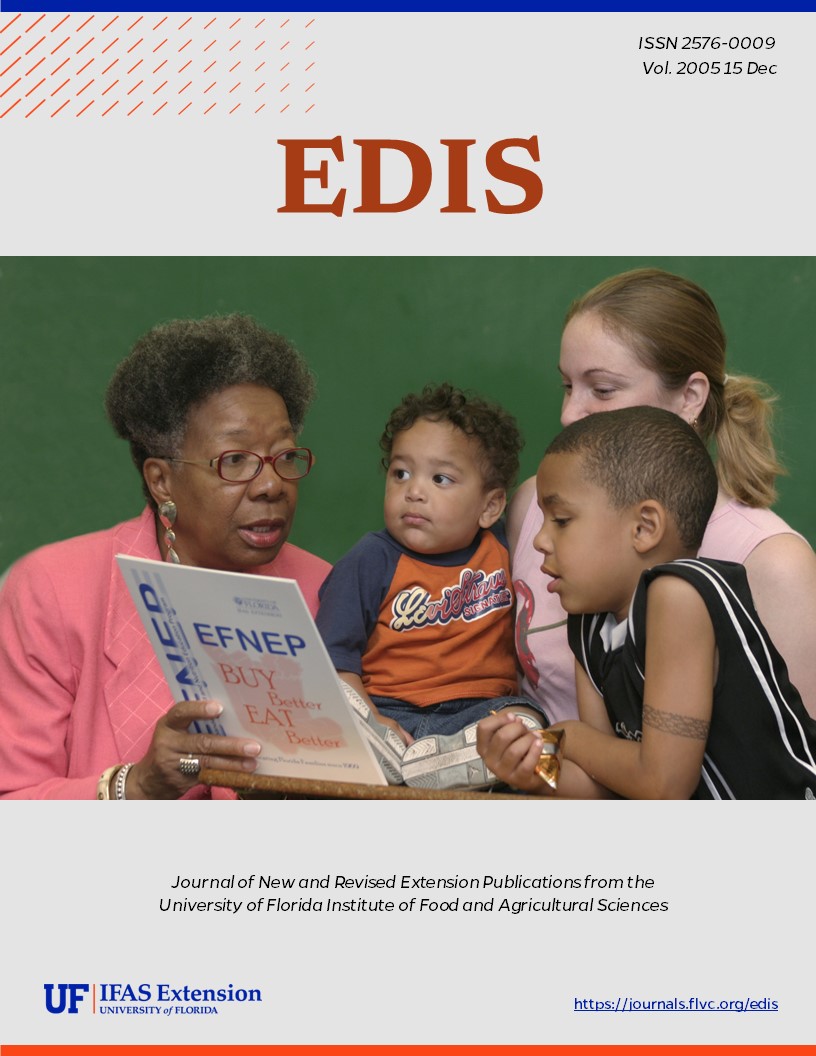Abstract
There is little debate remaining in the field of youth development that participation in extracurricular and community-based youth activities (sports, school and community organizations, arts groups, etc.) provides a rich context for positive youth development. Research has found that structured youth activities encourage positive youth development. Now we need to examine critically why and how as well as what types of developmental changes occur within the context of youth activities (Benson & Saito; 2000; Roth et al., 1998; Dworkin, Larson & Hansen, 2003). This document is FCS2239, one of a series of the Family, Youth and Community Sciences Department, Florida Cooperative Extension Service, Institute of Food and Agricultural Sciences, University of Florida. Original publication date: December 2005.
References
Benson, P., & Saito, R. (2000). The scientific foundations of youth development. In Jaffe, N., & Marquis, J. (eds.), Youth Development: Issues, Challenges and Directions. Public/Private Ventures, Philadelphia, PA, pp. 126-147.
Brown, B.B. (1990). Peer groups and peer cultures. In Feldman, S.S., and Elliot, G.R. (eds.), At the Threshold: The Developing Adolescent. 11:425-450.
Catalano, R., Berglund, M., Ryan, J., Lonczak, H., & Hawkins, D. (1999). Positive Youth Development in the United States: Research Findings on Evaluations of Positive Youth Development Programs. U.S. Department of Health and Human Services, Seattle, WA.
Dubas, J.S., & Snider, B.A. (1993).The role of community-based youth groups in enhancing learning and achievement through non-formal education. In Lerner, R.M. (ed.), Early Adolescence: Perspectives on Research, Policy, and Intervention. Erlbaum, Hillsdale, NJ, pp. 150-174.
Dworkin, J.B., Larson, R. & Hansen, D. (2003). Adolescents Accounts of Growth Experiences in Youth Activities. Journal of Youth and Adolescence, Vol. 32, No.1, February 2003, pp. 17-26. https://doi.org/10.1023/A:1021076222321
Eccles, J.S. & Barber, B.L. (1999). Student council, volunteering, basketball, or marching band: What kind of extracurricular matters? J. Adolesc. Res. 14: 10-43. https://doi.org/10.1177/0743558499141003
Israel, G.D. & Beaulieu, L.J. (2003). Laying the Foundation for Employment: The Role of Social Capital in Educational Achievement. Paper presented at the Conference on "Promoting the Economic and Social Vitality of Rural America: The Role of Education," in New Orleans, LA, April 14-15, 2003. https://doi.org/10.52324/001c.8392
Israel, G.D., Beaulieu, L.J. & Hartless, G. (2001). The Influence of Family and Community Social Capital on Educational Attainment. Rural Sociology, 66(1): 43-68. https://doi.org/10.1111/j.1549-0831.2001.tb00054.x
Jarrett, R.L. (1995). Growing up poor: The family experiences of socially mobile youth in low-income African American neighborhoods. J. Adolesc. Res. 10-111-135. https://doi.org/10.1177/0743554895101007
Larson, R. (2000). Towards a psychology of positive youth development. Am. Psychol. 55: 170-183. https://doi.org/10.1037/0003-066X.55.1.170
McLaughlin, M.W. (2000). Community Counts: How Youth Organizations Matter for Youth Development. Public Education Network, Washington, D.C.
Roth, J., Brooks-Gunn, J., Murray, L., and Foster, W. (1998). Promoting healthy adolescents: Synthesis of youth development programs. J. Res. Adolesc. :8:423-459. https://doi.org/10.1207/s15327795jra0804_2
Silbereisen, R.K., Eyferth, K., and Rudinger, G. (eds.) (1986). Development as Action in Context: Problem Beahvior and Normal Youth Development. Springer, New York. https://doi.org/10.1007/978-3-662-02475-1
Youniss, J., McLellan, J.A., Su, Y., and Yates, M. (1999). The role of community services in identity development: Normative, unconventional, and deviant orientations. J. Adolesc. Res. 14:248-261. https://doi.org/10.1177/0743558499142006

